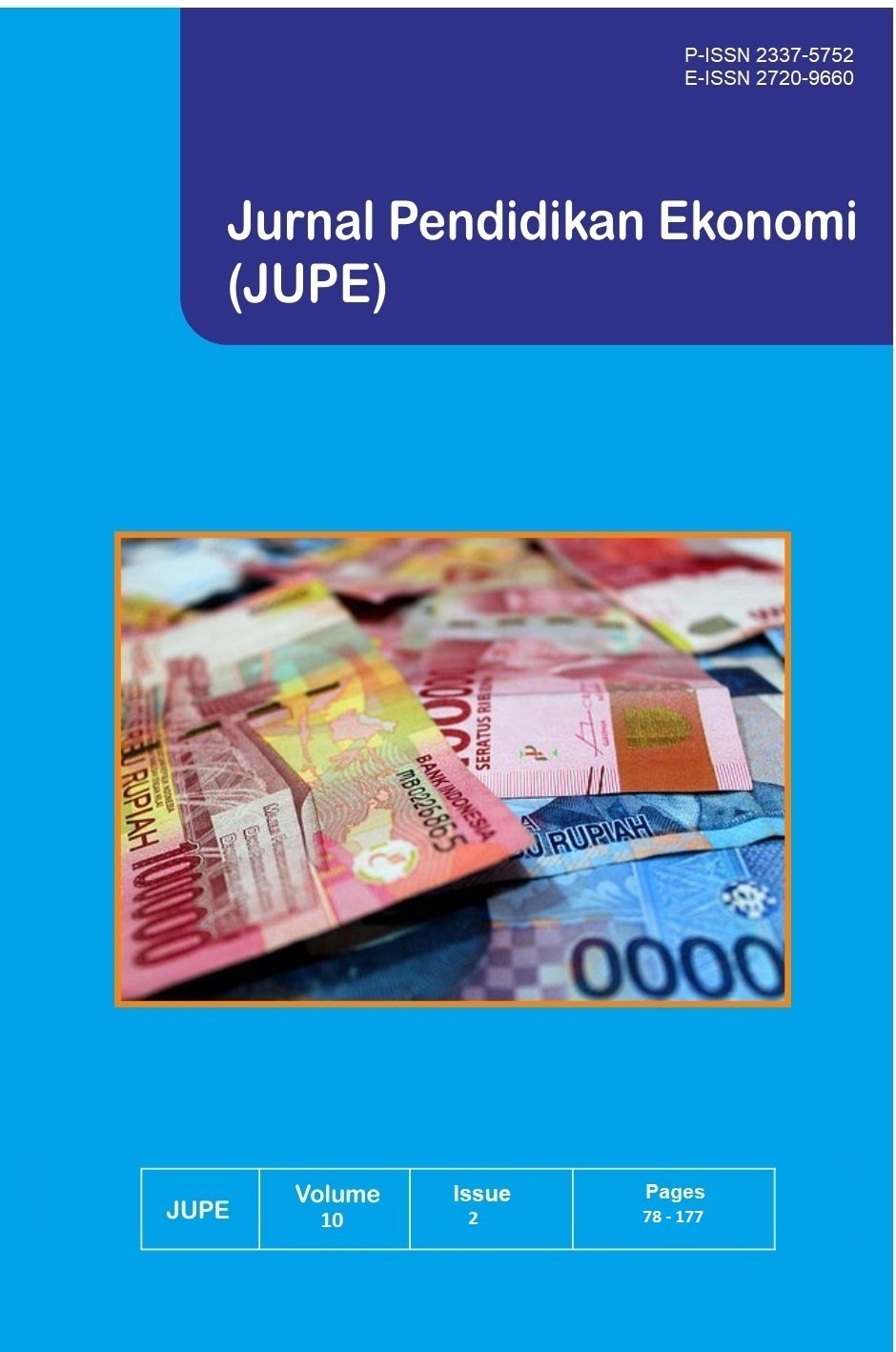Internalisasi Pendidikan Karakter di Masa Pandemi Covid-19 Melalui Pendidikan Kewirausahaan
DOI:
https://doi.org/10.26740/jupe.v10n2.p78-95Keywords:
character education, COVID-19 pandemic, entrepreneurship educationAbstract
Online learning makes the character of students neglected, this can lead to the loss of character. This study aims to look at the process of internalizing character education during the COVID-19 pandemic through entrepreneurship education as a general university course in Indonesia. The type of research method used is literature review, which is an explicit, systematic, and reproducible method in order to identify, synthesize, evaluate the research results produced by researchers. Data collection in the form of keywords used to find articles to be reviewed. During the COVID-19 pandemic, universities implemented distance learning so that learning could continue, this made the process of internalizing character education through entrepreneurship education continue to be carried out, through three stages, carried out gradually and continuously, namely 1) Value transformation stage, with presentations, discussions , and question and answer via the digital platforms Zoom or Google Meet. 2) The value transaction stage is carried out by field observations and virtual interviews with entrepreneurs. 3) The tran internalization stage is carried out by virtual practice by participating in entrepreneurship programs organized by the Directorate General of Higher Education in Independent Learning-Independent Campuses (MBKM), namely MKU, PKMI, KBMI, ASMI, PWMI, as well as the annual PKM program (PKMK). Students at the end have the values ??of character education and entrepreneurial character, namely having high responsibility, hardworking, creative, independent, democratic nature and attitude, love for the homeland, national spirit, achievement, socializing, love peace, love to read, and cares about the social environment, and has the nature of courage, wisdom, confidence, and foresight in seeing opportunities. Students with it will behave well, have sympathy, empathy, and know what is good and what is bad
Downloads
Downloads
Published
How to Cite
Issue
Section
License
Copyright
- Authors retain copyright and grant the journal right of first publication with the work simultaneously licensed under a Creative Commons Attribution License that allows others to share the work with an acknowledgment of the work's authorship and initial publication in this journal.
 Abstract views: 750
,
Abstract views: 750
, PDF Downloads: 632
PDF Downloads: 632











